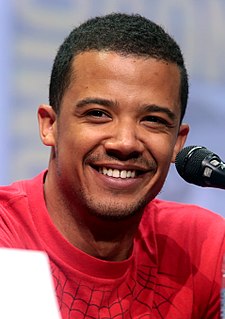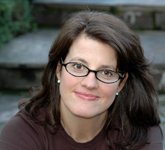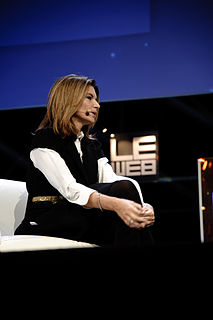A Quote by Chantal Akerman
My mother arrived in Brussels in 1938 from a small town near Krakow. But strangely enough, in 1942 or 1943, she was taken back to Auschwitz, which was just 30 miles from where she grew up. Her parents died there and a lot of her family.
Related Quotes
The adolescent does not develop her identity and individuality by moving outside her family. She is not triggered by some magic unconscious dynamic whereby she rejects her family in favour of her peers or of a larger society.... She continues to develop in relation to her parents. Her mother continues to have more influence over her than either her father or her friends.
Just like Marilyn Monroe is a lot of girls' idol, that's how I feel about Dorothy Dandridge. And she any Marilyn were very close friends. She went through a lot, and people told her that she couldn't do certain things, but she didn't let that bother her. She said in her mind that she was going to do them and that nothing was impossible, and she did it. It was so sad... She died from drugs, and drinking as well.
My mother didn't feel sorry for herself, she was left with no child support, no alimony at a very young age, with a child to raise, a high school education and she just figured it out. She didn't complain, she didn't rely upon government, she relied upon her own skill set, her own self confidence, her own drive in moxie and her own duty to me and her and she relied upon her family and her faith.
When I was a kid, my mum had a lot of Dumas books in the house, and she's from France originally. My mother had one particular Dumas book that was a family heirloom - this old, beat-up 1938 edition of 'The Count of Monte Cristo' in French. She came to America after losing her parents in World War II as a little kid.
The wide world was changing, and she wanted a different place in it. Not just wanted, but felt she deserved. If the world didn't owe her a living, as her mother repeatedly warned her, it owed her a break. She had a strong sense that a better, more exciting, more rewarding life than that which had been the lot of her parents and grandparents was hers by right. In this she was guilty of nothing more serious than the arrogance of youth, from which every generation suffers and by which it distinguishes itself from the preceding one.
She was the first person on either side of her family to go to college, and she held herself to insanely high standards. She worried a lot about whether she was good enough. It was surprising to see how relieved she seemed whenever I told her how amazing she was. I wanted her to feel strong and free. She was beautiful when she was free.
She sat leaning back in her chair, looking ahead, knowing that he was as aware of her as she was of him. She found pleasure in the special self-consciousness it gave her. When she crossed her legs, when she leaned on her arm against the window sill, when she brushed her hair off her forehead - every movement of her body was underscored by a feeling the unadmitted words for which were: Is he seeing it?
I envision a day when a businesswoman will be having lunch, and then her phone will ring. When she opens it up, she will see an image of the latest Marc Jacobs coat that just arrived in stock. With a click of a button, she can purchase it and then find it waiting for her when she gets back to her office.
But like a gambler at a slot machine, hoping the next spin would change her life for the better, she closed in before she lost her nerve. Taking his hand, she pulled him toward her, near enough to feel his body against her. She looked up at him, tilting her head slightly as she leaned in. Mike, recognizing what was happening but still having trouble believing it, tilted his head and closed his eyes, their faces drawing near.






































